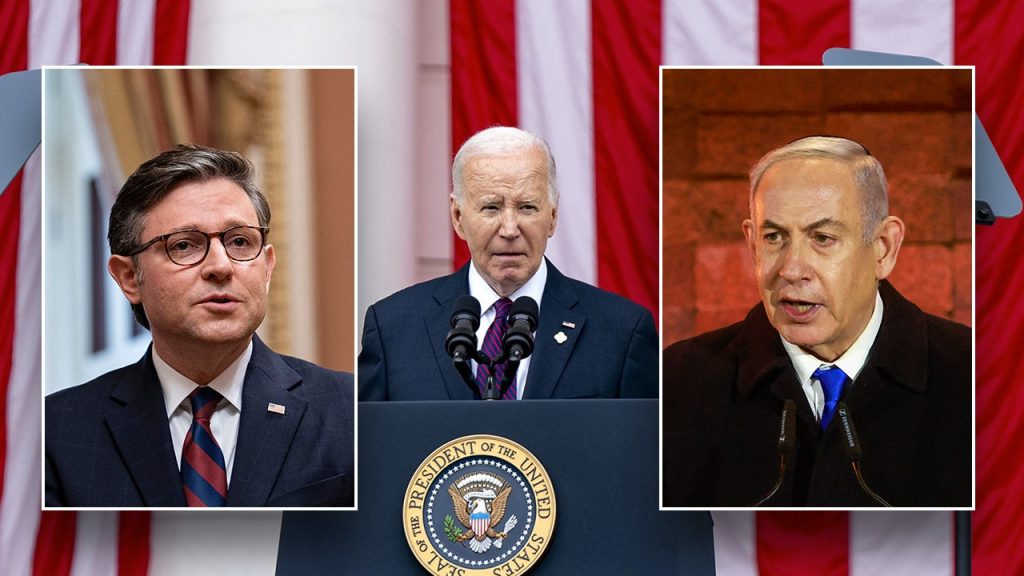House Speaker Mike Johnson is arranging to invite Israeli Prime Minister Benjamin Netanyahu to address Congress amidst the ongoing conflict with Hamas. The invitation is expected to be extended in the next eight weeks or after the August recess in September. Majority Leader Chuck Schumer has agreed to the joint address, despite calls for opposition from some Democrats. This move comes as the Biden administration and some Democrats have publicly clashed with Israel, including breaking with bipartisan efforts to sanction the International Criminal Court over warrants against Israeli officials.
Netanyahu expressed disappointment in President Biden for rejecting the sanctions bill, which had bipartisan support just days earlier. The White House’s decision not to support the sanctions was in response to the ICC’s requests for warrants against Israeli officials. The Biden administration has stated that they do not believe sanctions against the ICC are the appropriate response. Israel has faced criticism for their actions in targeting senior Hamas leaders in Rafah, resulting in civilian casualties. Despite Biden’s warning against entering Rafah, the administration stated that Israel’s recent actions did not violate any red lines set out by the president.
The potential address by Netanyahu to Congress is significant in the context of ongoing tensions in the region and the shifting relationship between the United States and Israel. Biden had warned Israel against offensive actions in Rafah, and his administration’s response to Israel’s recent actions in the region has been scrutinized. The invitation to Netanyahu could provide an opportunity for the Israeli prime minister to address Congress directly and address the criticisms and concerns surrounding Israel’s actions in Gaza. Schumer’s support for the address, despite some opposition within the Democratic party, highlights the complexity of the relationship between the U.S. and Israel.
The recent developments highlight the challenges and complexities of navigating the dynamics between the U.S., Israel, and other international actors in the region. The tensions between the Biden administration and Israel over the ICC sanctions issue reflect broader disagreements on foreign policy and strategic decisions. The invitation to Netanyahu to address Congress could serve as a platform for addressing these tensions and clarifying Israel’s stance on the conflict with Hamas. As the situation in the Middle East continues to evolve, the diplomatic relations between the U.S. and its allies, such as Israel, will be critical in shaping the outcome of the conflict and promoting stability in the region.













